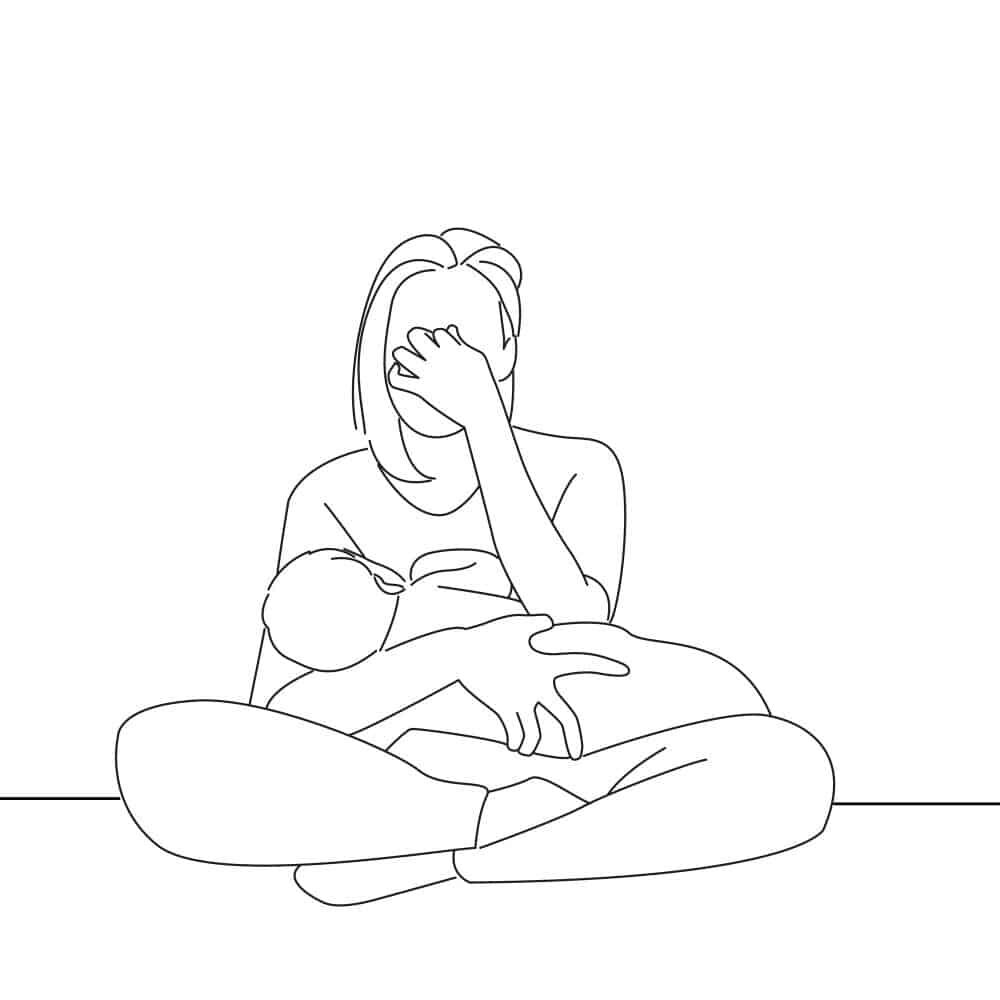General|Postpartum Wellness
You are Not Alone: Doula-ing you Through the Mental Load

Many of us mothering people sense the mental complexities of this special time. In so many ways, as we embark on the metamorphosis of becoming a parent, it’s the messy becoming ‘undone’ that takes center stage. This week, we in the Birthways community shine a light on the importance of compassionately caring for our mental health and well-being as we begin caring for our babies.
What we know if true from the data:
- Maternal mental health disorders, such as postpartum depression, anxiety and psychosis affect up to 20% of women during pregnancy or within the first year after childbirth
- Maternal mental health disorders are a global issue. Factors like a history of mental health issues, lack of support, stressful life events, and biological changes during pregnancy and after childbirth can increase the risk of maternal mental health disorders
- Research suggests that maternal mental health disorders can be passed down through generations, highlighting the importance of early intervention and prevention efforts.
- Untreated maternal mental health disorders can affect the mother’s ability to bond with their child, disrupt family dynamics, and have long-term effects on the child’s emotional, cognitive and social development
- Screening for maternal mental health disorders during pregnancy and postpartum visits is essential for early detection and intervention. Treatment options include therapy, support groups, medication and lifestyle changes
- Stigma surrounding mental health issues and societal pressure to be the “perfect parent” can prevent women from seeking help. Additionally barriers such as limited access to mental health services and childcare responsibilities can hinder treatment.
- Providing social support, promoting self-care practices, offering parenting education, and implementing policies that support work-life balance can help prevent and alleviate maternal mental health disorders
- Studies have shown that women who receive doula support during childbirth and the postpartum period are less likely to experience postpartum depression. The presence of a doula can help alleviate stress, provide emotional reassurance, and offer practical assistance, which may contribute to better mental health outcomes for new mothers.
- Positive birth experiences and successful breastfeeding can positively impact maternal mental health by promoting feelings of empowerment and confidence.
- Partners may experience increased stress and anxiety as they adjust to their new role and responsibilities as a parent. The demands of caring for a newborn, changes in routine and sleep can contribute to feelings of overwhelm and exhaustion.
- Research indicates that partners are at risk of developing depression and anxiety in the postpartum period. Studies have found that the prevalence of paternal postpartum depression ranges from 4-25% with risk factors including a history of mental health issues, lack of social support and relationship difficulties.
- Partners are less likely to seek help for their mental health concerns due to societal expectations of masculinity, stigma surrounding mental illness or a focus on supporting the mother and baby’s needs over their own. As a result, their mental health struggles may go unrecognized and untreated. This may hinder the partner’s engagement in caregiving activities, affecting the overall family dynamic and potentially exacerbating the mother’s own mental health issues.
What Birthways does to support mothers and partners:
Birthways has been the leading specialist in supporting the emotional health and wellbeing of parents, with psychologists involved in our model of care from day 1. Our team is trained to recognize, to respond and to make referrals, but also, to provide the emotional and practical support that reduces stress, fatigue, and calms our overactive minds as well as our tired bodies.
In our experience, the ‘hits’ against our mental health are cumulative. A night up with our fussy babies changes our brain chemistry, and impacts our thinking. Pain from our cesarean incision adds to our body and mind’s stress load. Our negativity bias kicks in. “I’m not good at this” is a thought that starts to color our day. Maybe we start to reflect on the feelings that surfaced during the long hours of labor, and the helplessness we felt when things didn’t go as we planned. Diminished coping leads to diminished positive moments with our babies and with our partners.
A postpartum doula can be a support by providing overnight care, addressing the root of fatigue and supporting restorative sleep. During the day, affirmative guidance from an expert experienced with newborn ways of communicating, can help a new parent to understand fussy baby behaviors, depersonalizing the fussiness and either getting to the root of it, or normalizing what can be expected of newborn behaviors. Breakfast and nutritious snacks throughout the day prepared by the doula ensures that no parent gets so off balance nutritionally that it exacerbates mood and hormonal imbalances. Our care strategies and our skilled listening provides relief from discomforts and support with pain management, as well as offer a compassionate space where families can begin to make sense of the birth, early steps towards the healing and self-acceptance that many parents may need after unexpected complications. Having an experienced and compassionate guide, as well as a practical set of hands to help new parents conserve their energy and resources, means that folding laundry doesn’t consume the time that could be spent napping. It means more space for observing and valuing all the emotions of this time. It means more physical rest and recovery. It means less power to the internal narratives that erode our confidence and mental well-being.
This is just a snapshot of how a day with a doula supports emotional wellbeing and can prevent or lessen the impacts of perinatal mood disorders. We don’t replace the care of a trained mental health professional or appropriate treatment. But the doula can play a key role in supporting our wellbeing in a particular way.
98% of our clients report that their doula had a positive or significantly positive impact on their confidence and emotional wellbeing.
As a doula organization of 27 years, we are in service to both the primary parent and the entire family unit for both practical, emotional and mental health needs. We have been a trusted referral from perinatal mental health specialists, doctors, midwives, and have worked collaboratively with mental health experts. We currently work with our clients in a whole-person model within a HIPAA-compliant practice platform, so that all our clients have their personal information secured, and we can be collaborators as appropriate.
Birthways recognizes the gravity of this time and values all parts of your experience. There is no one right way and no wrong way. There is only the way you are moving through your parenting journey. Our community is here for you if you or someone you know is in need of additional layers of support for well-being.
























